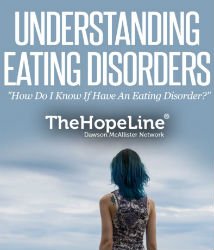Symptoms and causes
Symptoms of eating disorders vary depending on the type of disorder, but common signs include:
- Rapid weight loss or weight gain
- Preoccupation with weight, food, and body image
- Distorted body image
- Extreme food restriction
- Binge eating
- Purging behaviors (such as vomiting, laxative use, or excessive exercise)
- Obsessive calorie counting or food planning
- Social withdrawal and isolation
- Mood swings and emotional instability
The causes of eating disorders are complex and not fully understood. Research suggests that a combination of genetic, environmental, and psychological factors may contribute to the development of an eating disorder.
Genetics: Studies have found that eating disorders tend to run in families, suggesting a genetic component. However, the specific genes involved are not yet known.
Environmental factors: Certain environmental factors, such as societal pressure to conform to a certain body shape or weight, may contribute to the development of an eating disorder. Additionally, traumatic events or stressful situations may trigger the onset of an eating disorder.
Psychological factors: Eating disorders are often associated with underlying psychological issues such as low self-esteem, perfectionism, and difficulty regulating emotions. People with eating disorders may use food as a means of coping with difficult emotions or situations.
It is important to note that the causes of eating disorders are complex and multifactorial, and a combination of genetic, environmental and psychological factors may contribute to the development of the disorder. If you or someone you know is displaying symptoms of an eating disorder, seeking professional help is crucial.










Recent Comments